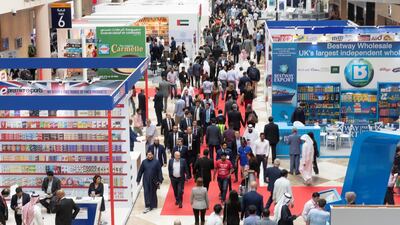Restaurants across Dubai will be forced to display their hygiene ratings at the front of their premises, officials have announced.
The new initiative – known as the Food Watch Connected programme – was launched by the city’s Food Safety Department on Sunday.
Authorities hope the scheme will encourage businesses to focus on improving their hygiene – though an exact date for the policy has yet to be set.
In 2017, some 100 restaurants in the emirate were shut down for failing to meet basic minimum standards.
“We are launching this initiative so that [hygiene] grades will be displayed at the front of restaurants,” said Iman Ali Al Bastaki, director of the food safety department.
“It will give consumers a clear idea if the restaurant is safe to eat in or not.”
Ms Al Bastaki made the announcement at the annual Gulfood trade show in the city.
She acknowledged there remained a great deal of work to do to improve standards but argued the scheme was a step in the right direction.
As part of the initiative, customers will be able to access the full hygiene record of any restaurant they choose to visit via their smart phone.
By scanning a bar code on the hygiene rating certificate, users will automatically be directed to a listing on the programme’s website providing details of any violations.
“These new protocols will help ensure that restaurants are all at the same standard regarding hygiene,” Ms Al Bastaki said.
“The user can scan a code at the food establishment and be connected to our website immediately.
“There they will find information about the restaurant, including the grade that was issued by Dubai Municipality representing their food safety and hygiene standards.”
Ms Al Bastaki went on to detail the difficulties in educating restaurant owners and their staff about food safety.
“When we go to restaurants, we try to teach them about food safety but they are not always convinced,” she said.
“Some people think as long as food is cooked hot then it is safe to eat, which is not always the case.
“Language is also one of the most challenging aspects we face in terms of inspections.
“When you have a language barrier anything you try to do becomes harder, from inspections to simple communication.
“We try our best to get the message across and we use translators but sometimes even that is not good enough.”


